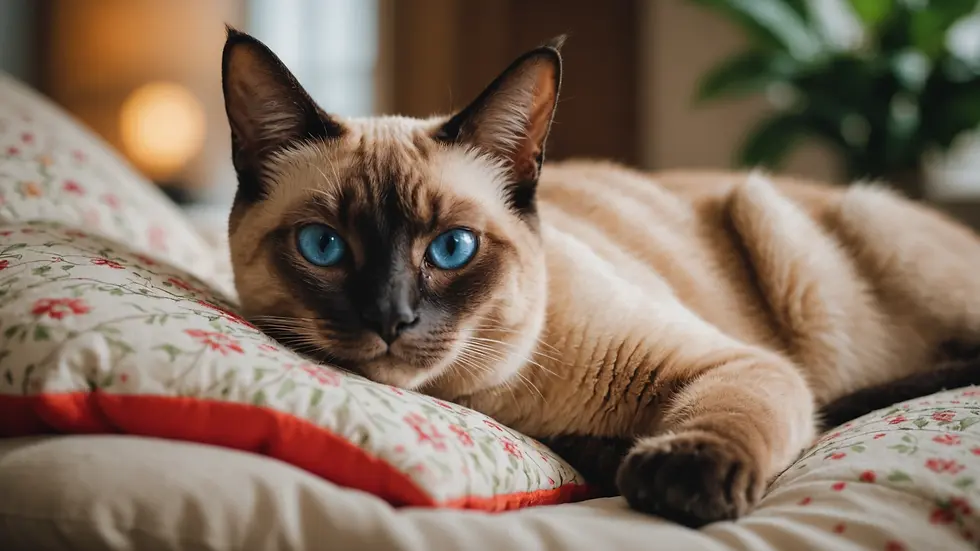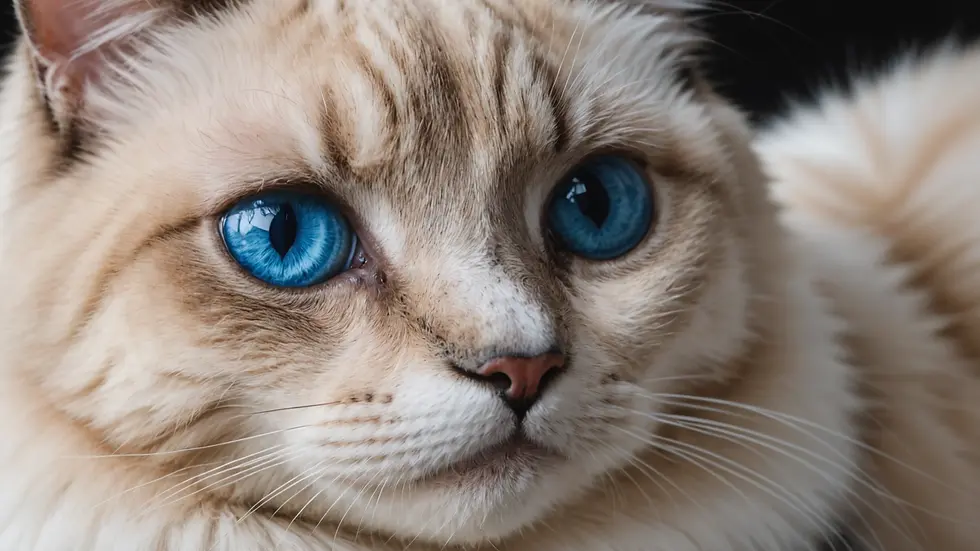Decoding the Mysteries of Cat Lifespan: Unraveling the Secrets of Different Breeds
- Jyotiraj Borah
- Feb 5
- 3 min read
Many people adore cats, but few understand the lifespan of different breeds. Cats are unique, and their lifespans can widely vary based on multiple factors. This post dives into the elements that influence how long our feline companions live and explores the expected lifespans of some popular breeds, armed with numbers and clear insights.
The Average Lifespan of Domestic Cats
On average, indoor cats live between 12 to 15 years, with some reaching their 20s thanks to good care. In contrast, outdoor cats face numerous dangers, leading to shorter lives between 7 to 10 years. Factors like disease, accidents, and predators often shorten outdoor cats' lifespans.
By focusing on a healthy lifestyle, cat owners can significantly extend their pets’ lives. Regular veterinary check-ups, essential vaccinations, balanced diets, and mental stimulation are all vital components that contribute to longevity.
Factors Influencing Lifespan
Understanding what influences a cat's lifespan can empower owners to provide better care. Some key factors are:
Genetics
Certain breeds have specific genetic issues that can affect their lifespan. For instance, mixed-breed cats often show fewer health problems than purebreds. This genetic advantage frequently translates into longer life expectancies.
Diet and Nutrition
Quality food plays a crucial role in a cat’s health. Providing a balanced diet that supports their nutritional needs can prevent issues like obesity and diabetes. Owners are encouraged to consult a veterinarian for tailored dietary advice.
Lifestyle
The environment also impacts lifespan. Indoor cats generally fare better, avoiding outdoor hazards like cars and aggressive animals. Ensuring a stress-free living space with plenty of playtime can improve mental health, thus promoting a longer life.
Health Care
Regular visits to the vet are essential for managing health risks. Routine vaccinations, dental treatments, and parasite preventatives can all lead to a longer, healthier life. Pet owners should watch for changes in behavior, which could signal health concerns that need attention.
Lifespan by Breed
Lifespan varies significantly by breed, with some known for longer lives and others for health challenges.
Siamese Cats
Siamese cats typically live between 15 to 20 years. Known for their striking looks and friendly nature, they are generally healthy but can be prone to certain genetic issues, such as dental problems.

Maine Coon Cats
The Maine Coon is one of the largest domestic breeds, living 12 to 15 years on average. While robust, they can develop health issues like hypertrophic cardiomyopathy (HCM) if not regularly checked. Early detection can make a huge difference in their quality of life.
Persian Cats
Persian cats generally live about 10 to 17 years. Their beautiful long hair requires regular grooming to avoid skin issues. Additionally, their flat faces can lead to respiratory problems, demanding attentive care from their owners.
Ragdoll Cats
Ragdolls are known for their loving nature and striking blue eyes, with lifespans between 12 to 15 years. When properly cared for, some Ragdolls live up to 20 years. While they typically experience fewer health issues, regular check-ups remain important.

British Shorthair
British Shorthairs enjoy a lifespan of 12 to 20 years. Their sturdy build makes them generally healthy, but they can become overweight without proper diet management. A balanced diet and regular exercise are essential for keeping them fit.
Abyssinian Cats
Abyssinians are active and playful, typically living 12 to 15 years. While generally healthy, they are at risk for certain kidney diseases as they age. Regular veterinary monitoring can catch health problems early.
Sphynx Cats
Sphynx cats, known for their hairless appearance, usually live between 12 to 15 years. They do not experience fur-related issues, but they may suffer from skin conditions, requiring consistent skincare and regular baths to stay healthy.

Bengal Cats
Bengal cats are energetic and typically live 12 to 16 years. Their playful character means they need ample exercise and mental challenges. Keeping them engaged and active helps maintain their health throughout their lives.
Final Thoughts
Grasping the factors influencing cat lifespans is crucial for prospective owners. While indoor cats generally average 12 to 15 years, specific breeds may have varied life expectancies shaped by genetics, nutrition, lifestyle, and veterinary care.
Proper care does not guarantee a long life, but it certainly increases the chances. By being aware of breed-specific health concerns and providing love, comprehensive care, and routine vet visits, owners can help their furry friends lead long and happy lives.
Every cat is unique, with a lifespan influenced by numerous factors. A thorough understanding enables owners to create the best environment for their beloved pets and unlock the secrets behind their lifespans.




Kommentarer